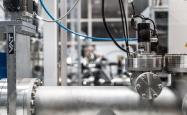北汽襄阳4s店地址查询
Exploring Beijing Automotive New Energy's Xiangyang Factory
Beijing Automotive New Energy, or BAIC New Energy, is a subsidiary of BAIC Group, a major Chinese automaker. The Xiangyang Factory represents a significant step in their commitment to electric vehicle (EV) production and the broader advancement of the automotive industry in China. Let's delve into the key aspects of this factory:
Location and Infrastructure
Situated in Xiangyang, Hubei Province, the factory enjoys strategic positioning in central China. This location provides logistical advantages for both sourcing raw materials and distributing finished vehicles across the country.

The infrastructure of the factory is designed with modern manufacturing principles in mind. It incorporates advanced assembly lines, robotic automation, and efficient workflow layouts to optimize production processes.
Production Capacity
The Xiangyang Factory is engineered to handle a substantial volume of electric vehicles annually. Its production capacity reflects BAIC New Energy's ambition to scale up EV manufacturing to meet the growing demand in the Chinese market.
Technology and Innovation
As a key player in the electric vehicle industry, BAIC New Energy prioritizes technological innovation. The Xiangyang Factory serves as a hub for research and development, fostering collaboration between engineers, designers, and manufacturing specialists.
Cuttingedge technologies such as AIdriven quality control systems, battery management solutions, and smart manufacturing tools are integrated into the production processes. These innovations not only enhance the efficiency of vehicle assembly but also contribute to the overall quality and reliability of BAIC New Energy's electric vehicles.
Sustainable Practices
Environmental sustainability is a core principle guiding BAIC New Energy's operations. The Xiangyang Factory adheres to stringent environmental standards, implementing measures to minimize energy consumption, reduce waste generation, and mitigate emissions.
Moreover, the production of electric vehicles aligns with the broader goal of reducing greenhouse gas emissions and combating climate change. By transitioning to electric mobility solutions, BAIC New Energy contributes to China's efforts to build a more sustainable transportation sector.
Economic Impact
The establishment of the Xiangyang Factory has significant economic implications for the region and the country as a whole. It creates employment opportunities, stimulates local businesses, and drives economic growth in the surrounding areas.
Furthermore, by bolstering China's position as a global leader in electric vehicle manufacturing, BAIC New Energy's investments in the Xiangyang Factory contribute to the country's competitiveness in the international automotive market.
Future Outlook
Looking ahead, the Xiangyang Factory is poised to play a pivotal role in BAIC New Energy's longterm strategy. Continued investments in technology, innovation, and sustainability will further enhance the factory's capabilities and cement its position as a cornerstone of China's electric vehicle industry.
As the demand for electric vehicles continues to rise, fueled by environmental concerns and government incentives, the Xiangyang Factory is wellpositioned to meet the evolving needs of consumers and contribute to the ongoing electrification of the automotive sector.
In conclusion, the Xiangyang Factory represents not only a significant investment by BAIC New Energy but also a testament to China's ambitions in the field of electric mobility. By combining advanced technology, sustainable practices, and strategic vision, the factory serves as a beacon of innovation and progress in the automotive industry.
1.本站遵循行业规范,任何转载的稿件都会明确标注作者和来源;2.本站的原创文章,请转载时务必注明文章作者和来源,不尊重原创的行为我们将追究责任;3.作者投稿可能会经我们编辑修改或补充。









